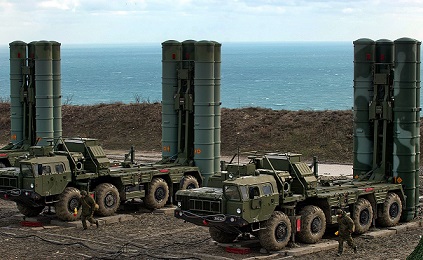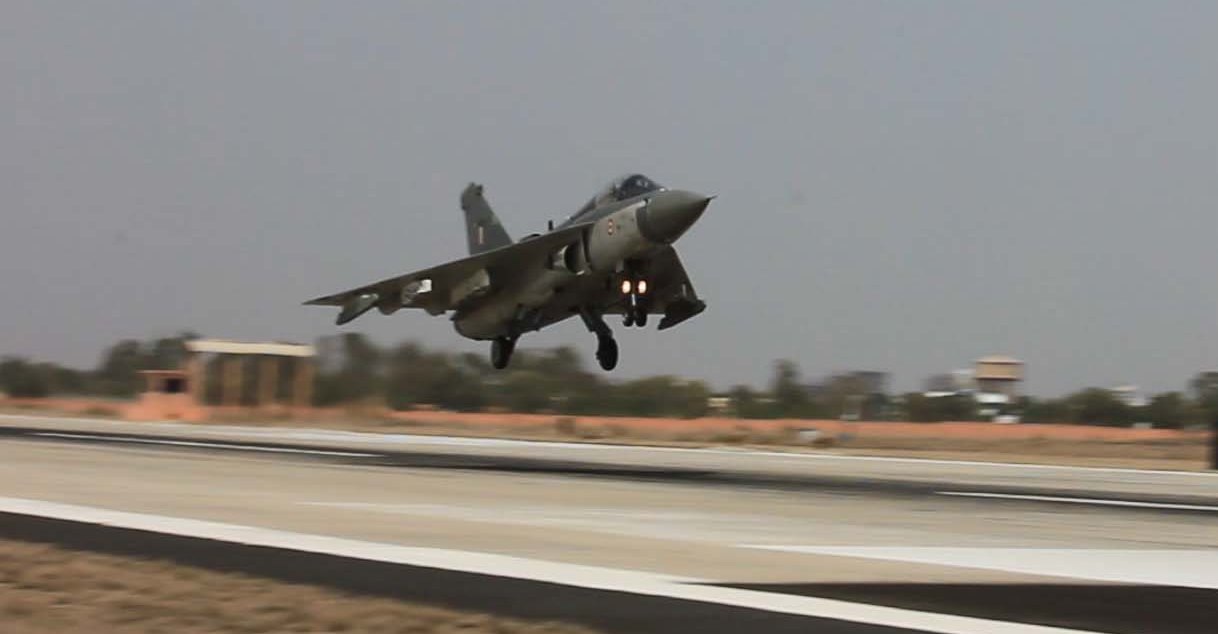
The S-400 air defence missile system.
WASHINGTON (PTI): Defence Secretary Jim Mattis on Friday appealed to the Congress to urgently provide India the national security waiver, saying imposing sanctions on it under a newly-enacted law for buying the S-400 air defence missile system from Russia would only hit the US.
During a Congressional hearing held by the Senate Armed Services Committee, Mattis told American lawmakers that the national security waiver should be urgently provided to India and other countries which are trying to turn away from formerly Russian-sourced weapons to avoid sanctions under Countering America's Adversaries Through Sanctions Act (CAATSA).
CAATSA, which was signed into law in August 2017 and went into effect in January this year, mandates the Trump administration to punish entities engaging in significant transaction with the defence or intelligence sectors of Russia.
India is currently in an advance stage of negotiations with Russia for five S-400 system worth an estimated US$ 4.5 billion.
The S-400 Triumf long-range air defence missile system has the capability to destroy incoming hostile aircraft, missiles and even drones at ranges of up to 400 km. The S-400 missile system can fire three types of missiles and simultaneously engage 36 targets, thereby creating a layered defence.
Unlike other legislations, there is no national security interest waiver under CAATSA. And imposing sanctions on countries like India would only hit the United States, Mattis said.
"There is no national security waiver to what is referred to as the CAATSA Act, the specific act that says that, if another nation buys military equipment from Russia, then we will not sell them ours," Mattis told lawmakers.
"There are nations in the world which are trying to turn away from formerly Russian-sourced weapons and systems like this. We only need to look at India, Vietnam and some others to recognise that, eventually, we're going to paralyse ourselves," he said.
"So what we ask for is that the Senate and the House pass a national security waiver in the hand of the secretary of state – I'm not asking for myself. Foreign policy is driven from Foggy Bottom. So, if he has the waiver authority and I can go to him and show it's in our best interest, then we get an internal management of this process, but it keeps us from being boxed in by the Russians," Mattis said.
The Defence Secretary was responding to a question from Senator Jack Reed on Russia sanctions. "In the wake of the annexation of Crimea and the activity in Ukraine, Congress, in the 2015 NDAA, prohibited bilateral military-military cooperation with Russia, which, at the time, seemed to make perfectly good sense, he said.
"At this moment, when we're in a very challenging situation in many areas of the world, would it make sense to review those provisions and give you more flexibility in ways in which you could conduct military-to-military dialogue with Russia in certain situations?" Reed asked.
The CAATSA issue was also raised by Senator Tom Cotton.
"You mentioned two specific countries, India and Vietnam, that have legacy Russian systems. They might face real challenges going cold turkey, so to speak, under CAATSA," he said.
"So, you're suggesting the national security waiver as a way that this Congress can empower soon-to-be-Secretary Pompeo to address the concerns that you have with those two countries, is that right?", Cotton asked.
"That's correct. And there's other countries. Indonesia, for example is in the same situation, trying to shift to more of our airplanes, our systems. But they've got to do something to keep their legacy military going," Mattis said.
Over the past several weeks, the Pentagon, lawmakers and experts have raised concerns over CAATSA legislation.
Top American lawmakers and experts have warned that imposition of sanctions on India under a newly-enacted law if it buys the S-400 air defence missile system from Russia could be disastrous for the Indo-US ties.
At an event on the Capitol Hill, experts and lawmakers on Thursday warned that any imposition of sanctions on India, which is now a major defence partner, could be disastrous for the bilateral relationship and as such there is an urgent need to prevent that from happening.
"CAATSA sanctions would damage US-India relationship, warned Keith Webster," who represented Pentagon in the Defence Trade and Technology Initiative (DTTI) in the previous Obama Administration.
He is currently president of the defence and aerospace export council US Chamber of Commerce.
"I do think, it (CAATSA) is a serious issue that needs to be dealt. There needs to be a dialogue between the US and India. Our goal is not to sanction India," Congressman Joe Crowley, House Democratic Caucus Chairman, said at the US-India Friendship event.
 Next Article
Next Article












The Indian Air Force, in its flight trials evaluation report submitted before the Defence Ministry l..
view articleAn insight into the Medium Multi-Role Combat Aircraft competition...
view articleSky enthusiasts can now spot the International Space Station (ISS) commanded by Indian-American astr..
view article